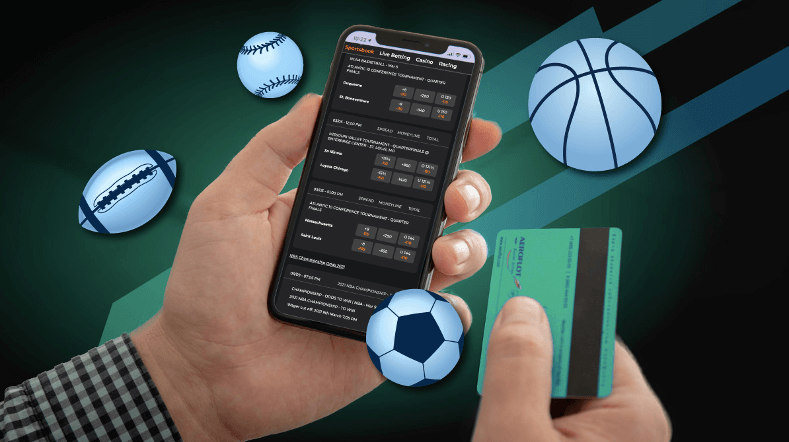How 5G Technology Will Impact Our Lives and Industries
The introduction of 5G technology represents not just an upgrade in mobile connectivity; it heralds a new era of technological advancement that will significantly influence numerous sectors of our lives. With its enhanced speed, lower latency, and increased capacity, 5G is set to revolutionize the way we communicate and interact with various industries. As we delve deeper into the implications of 5G, we will explore its impact on communication, healthcare, transportation, entertainment, and various other sectors. Additionally, you can check out the How 5G Technology Will Impact Mobile Casinos in Bangladesh shop bet9ja login for insights on how technology influences modern betting platforms.
1. The Communication Revolution
5G technology promises to fundamentally alter the landscape of communication. With download speeds up to 100 times faster than 4G, users will benefit from seamless video calls, instant file sharing, and the capacity for real-time collaboration across vast distances. Imagine being able to download an entire HD movie in mere seconds or participating in a virtual meeting without the lag that often accompanies video calls today. As communication becomes more instantaneous, the potential for productivity rises significantly, enabling businesses and individuals to operate more effectively.
2. Transformation in Healthcare
The impact of 5G on healthcare cannot be overstated. With its low latency and high bandwidth, 5G technology facilitates remote healthcare services that were previously unimaginable. Telemedicine will become a critical component of healthcare, allowing patients in remote areas to consult with specialists in real-time. Additionally, 5G enables sophisticated medical applications, such as robotic surgeries, where surgeons can operate machinery from miles away with precision and speed. Furthermore, advancements in wearable health devices that monitor vital signs and conditions in real-time will become more prevalent, aiding in preventive care and immediate response to health issues.

3. Revolutionizing Transportation
The transportation industry stands to gain tremendously from the implementation of 5G technology. With the advent of autonomous vehicles, real-time data exchange between cars, road infrastructure, and traffic management systems will be crucial. 5G will facilitate the communication necessary for autonomous vehicles to navigate safely and efficiently, reducing accidents and improving traffic flow. Furthermore, 5G will enhance public transportation systems, allowing for better scheduling, route optimization, and real-time updates for passengers, resulting in an overall better travel experience.
4. Enhancing the Entertainment Experience
As technology evolves, so does our consumption of entertainment. 5G will revolutionize the way we access and enjoy content. Streaming services will see a major upgrade, with the ability to deliver high-resolution 4K and 8K content without buffering issues. The rise of augmented reality (AR) and virtual reality (VR) experiences will also be accelerated, offering immersive environments for gaming and storytelling that were previously unattainable. Users will be able to enjoy multiplayer gaming and social experiences in VR without disruptions, further blurring the lines between reality and digital interaction.
5. Smart Cities and IoT Integration
5G technology will be integral in the development of smart cities, where interconnected devices work seamlessly together to enhance urban living. The Internet of Things (IoT) will thrive on the capabilities that 5G provides, allowing for smart appliances, autonomous public transportation systems, and optimally managed utilities. Cities will become more efficient, with reduced energy consumption and improved waste management, thanks to the real-time data provided by interconnected devices. The potential for data-driven decisions will help city planners create more sustainable and livable environments.

6. E-Commerce and Retail Transformation
The retail and e-commerce sectors are also primed for transformation with the rollout of 5G technologies. Enhanced connectivity will mean faster transactions and improved customer experience, making online shopping more efficient and enjoyable. Retailers can utilize advanced analytics and big data to personalize the shopping experience for consumers, resulting in tailored product recommendations and targeted marketing strategies. In-store experiences will also benefit considerably from 5G, as augmented reality applications can provide customers with interactive shopping experiences, allowing them to visualize products in real-time before making a purchase.
7. Challenges and Considerations
While the potential impacts of 5G are vast, challenges must be addressed for successful implementation. Concerns over security, privacy, and the digital divide must be prioritized. As more devices become connected, the risk of cyberattacks increases, necessitating robust security measures to protect personal and organizational data. Additionally, ensuring equitable access to 5G technology is vital to prevent exacerbating social and economic disparities, particularly in rural and underserved areas. Policymakers and technology leaders must work together to create frameworks that address these challenges while encouraging innovation and growth.
Conclusion
The launch of 5G technology is not merely about faster downloads and an improved mobile experience; it represents a vast ecosystem of change that will shape the future of industries and our daily lives. From healthcare to transportation, entertainment to smart cities, the potential for 5G to influence every facet of society is immense. As we continue to explore and adapt to this technological evolution, we must remain vigilant about the challenges it brings while embracing the opportunities for growth and transformation. With the collaborative efforts of businesses, governments, and individuals, the future powered by 5G technology promises to be a landscape of unprecedented connectivity and innovation.

